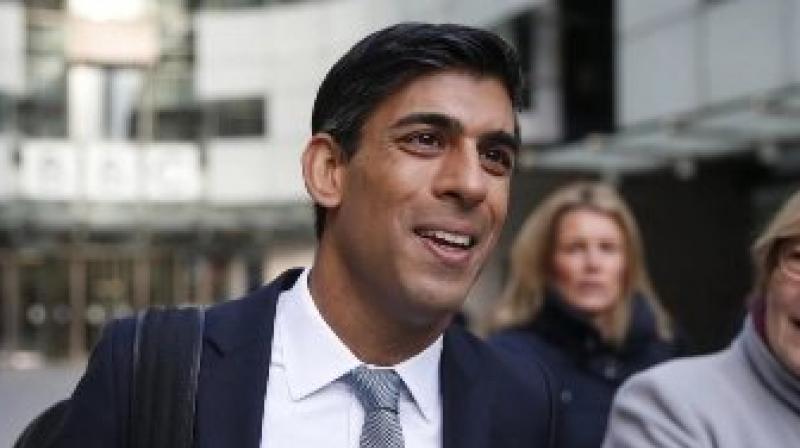First item done
For four decades we have been fed a constant stream of propaganda assuring us that green energy was the only way forward if we wanted to secure supplies of the energy essential to a modern society while preventing the environmental catastrophes that would be the inevitable consequence of climate change caused by the Carbon Dioxide (CO2) emitted by human industrial, commercial and social activity.
The usual suspects (politics, the media and academic communities,) played down the fact that evidence for their predicted climate change scenarios came entirely from mathematical models of climate activity rather than real world evidence and played up the fear factor, cherry picking evidence from their results to paint pictures of a barren, lifeless planet if we allowed the concentration of the trace atmospheric gas Carbon Dioxide (which is essential to the continued viability of all carbon - based lifeforms (i.e. every living thing on the planet.).
It is all bollocks of course but that did not stop governments, advised by academics and cheered on by the media, pursuing loonytoons energy policies based on wind and solar panels (not quite smoke and mirrors but close enough for jazz,) and shutting down reliable coal, gas and nuclear power plants in favour of getting our energy from unreliable, intermittent sources. Wind does not blow at a constant speed twenty four hours a day, seven days a week and in reality only blows at speeds within the optimum for wind turbines to generate power for around twenty - five percent of the time. And although the information seems to have escaped followers of the quasi - religious cult that worships a god named "The Science," the sun is only present in the skies above their solar panels for on average twelve hours a day.
It is due to ignoring basics like this we in the developed nations of Europe and North America find ourselves in the grip of an energy crisis. The energy crisis in Europe has highlighted the challenges the world is facing in the what progressives global energy transition and realists think of as the return to medievalism
Throughout the decades in which 'sustainainable energy has been touted as the saviour of civilisation it is becoming increasingly clear that green energy has failed, wind turbines and solar panels cannot reliably supply enough energy to power modern societies and fossil fuels will remain the key part of the energy generation for decades to come
In 2018, Aluminum '18 Dusseldorf the “premier aluminum conference in Europe”, the weather alert app kept displaying daily ozone levels in the “high” or “extremely high” range and any delegates experienced a persistent cough. This, the organisers explained, was due to the dominant method of energy generation used in Germany, coal. A few years before that the German government had proudly proclaimed itself one of the leaders in the switch to green energy and the race to achieve the fabled 'net zero.'
Unfortunately as well as phasing out its coal fired power plants, after the Japanese Fukushima nuclear disaster, the German government implemented a plan to shut down its entire nuclear operations no later than 2022.
We can now see that decision by Germany was a real clunker, whether it was "led by The Science," (such decisions are always wrong,) or by a genuine but misplaced desire to save the planet (in which case it targeted the wrong demon,) it has resulted in Germany losing its leverage with Russia, because where Russia's need for foreign exchange balanced Germany's need for gas, now Germany, having shut down its alternative energy sources and abandoned coal, now relies on Russian gas, while Russia has alternative customers to sell to.
And ironically Germany already had “clean energy” from its well managed nuclear installations but now must revert to 'dirty' coal to avoid blackouts.
Meanwhile, as the world watches the Russian invasion and also prognosticates the impact of sanctions, (the Boggart Bloggers forecast sanctions will have minimal impact for reasons stated here many times,) other European nations are falling into similar energy holes they have dug for themselves will badly thought out green policies.
And with the hit to energy supplies that must come from any prolonged conflict in Ukraine, German industrial, commercial and domestic energy users can expect rough (and expensive) times ahead.
On Putting The Wind Up European Energy Consumers
Have you ever stood in a field and felt a constant breeze for hours with no interruption at all? Well, we haven’t either. However, if you think wind comes and goes how about relationships with other countries like Russia? Perhaps one can conclude that renewables serve best as supplemental energy sources, certainly not primary sources. When Texas needed to fly helicopters with jet fuel derived from oil to thaw out windmills, clearly the grid did not perform as planned. This begs the question: will the move to green energy continue and will it pull up metals prices needed to support green energy initiatives? If the trend does not continue, one might expect a sharp reversal for several metals.
Evidence that the US power grid has weakened
Home and commercial generator manufacturer Generac has seen a big uptick in home generator sales according to this recent article. Heck, even one of our analysts recently purchased a natural gas generator from Generac to shore up a weaker local power grid. And CEO Aaron Jagdfeld confirmed rising sales in Russia and Ukraine by stating, “we’re seeing interest in Russia and Ukraine which arguably might be related to some of the security concerns short term.”
To us, this represents a sure sign that people know the grid appears unsustainable. The green narrative centers around climate change as the root cause of more severe weather but the other factor relates to the unreliability of green energy and power companies have failed to make the investments in backup energy sources needed to support wind and solar. Green energy goes down far more often than either nuclear or coal plants.
From an alternative investment standpoint, the lack of energy independence, the lack of sunshine or wind at times will help spur other energy spin-off companies such as generator companies (by the way the home generator lead time for this editor stands at 5 months). Another spin-off will include diesel vehicles produced with mobile generators to charge cars after they run out of charges on highways.
Energy independence equals negotiation leverage
Does energy independence create autonomy? Germany and the rest of Europe may have the opportunity to discover that answer now. Energy of course drives the overall economy literally fuels productivity. In supplier negotiations, the easiest way to control the process involves gaining leverage. And thus the easiest way a country can gain leverage involves the control of its energy. We now see this throughout Europe and to a lesser extent, the United States right now. The US placed sanctions on Russia but failed to address the oil they sell us. In this respect, the US has lost negotiation leverage. By ceding our own energy autonomy, the US becomes beholden to despots like Putin. Moreover, Russia can choose both to cripple the US as well as the timing.
Oil prices, commodity markets and underlying metal prices
Oil prices have no immediate cap. Prior to the invasion, rising demand already provided price support. By shutting down American production, the US gave up its control over the oil price. As a net exporter of oil, the US also supplied the world market. Thus the US had a role with both supply and demand. Second, any time oil prices surged, the US could enter the market with more supply and thus help control prices. Moreover, as the only non-OPEC producer, the US had some control over global oil prices.
Although oil prices make up some 30% of the CRB index, a rising oil price might not carry over to industrial metals. Nor does it apply to the price of individual exchange-traded metals (e.g. aluminum, copper, nickel etc). The one-two combination of rising oil prices combined with steep inflation will likely depress demand for goods and services. Ordinarily, a rising oil price tends to signal rising demand and often, a healthy economy. Today, just the opposite may occur.
A page from 2008 – 2016
Perhaps part of the strategy involves driving up oil prices, to help hasten the switch to green energy and technologies. And in time, perhaps that transition will occur. In the meantime, most of those technologies do not generate a strong ROI — either for the consumer or for businesses. And with a Russian invasion of Ukraine, perhaps it’s time for a rethink.




Funny how all these governments are now desperately rushing through their own versions of censorship bills to prevent free and open discussion of the COVID scandals. They claim they want to fight mis and disinformation. No they want to save their own arses, the status quo and do everything in their power to stop the truth from getting out.